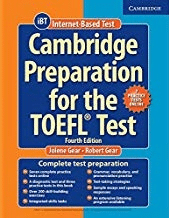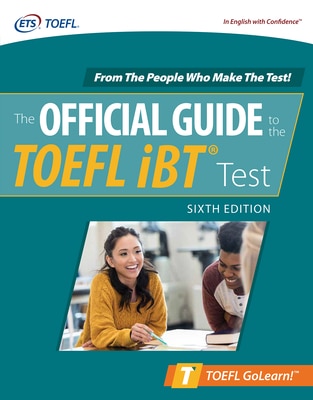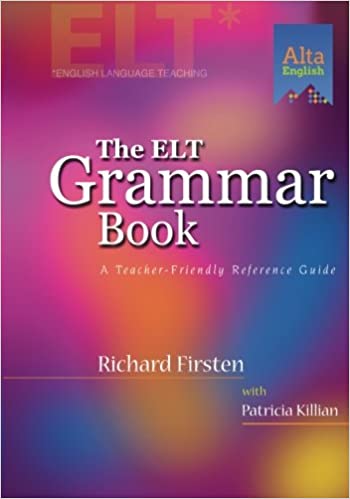(NOTE: The TOEFL books that Magoosh reviews and recommends reflect the older, pre-August 2019 version of the test. As of this writing, there are no TOEFL prep books that reflect the newest version of the test. Fortunately, older-format books are still very useful in prepping for the current TOEFL. For details on this, see Magoosh’s tutorial on using older prep for the 2019 TOEFL.)
Well, it’s time to really analyze the book that I’ve been recommending to students for years. I’ve always known it’s not perfect, but Cambridge Preparation for the TOEFL has enough good aspects that it’s been my favorite TOEFL book for a long time. But don’t be surprised if I say a lot of negative things about the book in this post. While carefully going through Cambridge Preparation and listing the problems and benefits, I actually surprised myself with more flaws than I expected. There are plenty of pieces that could be better. But, then again, that’s true with every other TOEFL prep book I’ve used, and the strengths of Cambridge’s book are important enough that it’s still a valuable resource.
Let’s break it down and look at the details.
The Two (almost) Identical Versions
If you look for Cambridge Preparation for the TOEFL online, you’ll find that there are two versions of it: an edition from 2006, and one from 2016. These two editions have only one difference: The 2006 edition comes with practice tests on a CD, while the 2016 edition allows you to access the exact same practice tests online.
TOEFL Practice Material
The front cover of Cambridge Preparation makes very clear one of the best features of this book: it includes 7 full-length practice tests that you can access online (or access via CD in the 2006 edition of the book). And what’s more, Cambridge’s test software is very similar to the software of the actual TOEFL iBT. The buttons are the same. The clock is the same. It’s actually more similar in format than the practice tests that come with the Official Guide, strangely. For example, in the Official Guide software, the listening section has a clock which counts down even during the recordings. That’s not true on the real test, and Cambridge recognizes that—the practice tests on the CD only count down while you’re answering questions, not while you’re listening.
A particular advantage of this new edition is that it works on both Mac and PC. The older CDs in the previous version of the book do not work on Macs that use OSX Lion or higher (10.7+). So this 2016 Cambridge TOEFL book certainly offers good news for Mac users.
With that said, even if the tests do work in your browser/on your computer, they are not very easy to use. You can’t easily navigate through the practice tests if you want to use the material for non-full-length practice. The tests freeze, sometimes. Online or off, it’s generally not very well-made software. But the fact that it is so similar to the real ETS tests helps to excuse these flaws.
In the book, there are additional practice sections of each of the four skills, separated from each other, mixed in with the skill-building practice. If you add that to the full-length test practice, you have a very good amount of practice material altogether (assuming you are able to access the practice tests with minimal issues).
How is the quality of that practice, though? This is where one of the major issues with Cambridge Preparation lies. There are far too many poorly made practice questions, especially in the reading. For example, here’s the first question in the book, together with the related text:
Geologists have shown that for about 80 percent of the past 2.5 million years, ice-age conditions have prevailed on the Earth’s surface.
The word “prevailed” in the passage is closest in meaning to
(A) ruled
(B) existed
(C) survived
(D) triumphed
The answer they give as correct is (B), and that’s fine; that’s the best answer. But there are two problems, here. For one, answer choice (A) actually works well in context and wouldn’t change the meaning much. That makes it too tempting. Besides that, answer choice (D) is a good synonym for “prevail” when it’s used in another sense—the more common meaning, actually. The TOEFL doesn’t put synonyms like that in the answer choices. You would never get a question like this on your test.
Questions like these are only 5%–10% of the reading, and they’re even less common in the other sections, but they appear there, too. In that same practice test, there’s a speaking task (question #5) which has you listen to two students discuss four different ways to memorize vocabulary, after which you summarize and pick one of the four as your favorite. On the real TOEFL, you’ll only hear two options in speaking task #5. That may seem like a small detail, but it greatly changes how you manage your time while speaking.
These problems are relatively uncommon, but they’re important to note. When the practice is good, it’s very similar to the real TOEFL. The listening recordings are almost exactly what you’ll hear on the test. The reading passages are all well done. The essay questions are generally accurate. Sometimes, though, it does have big flaws.
Explanations
This is the second big imperfection in Cambridge’s book: the explanations for the practice tests are too short. They don’t discuss the wrong answers, and they usually don’t give any helpful information. They’re very similar to the explanations in ETS’s Official Guide. But the explanations for the rest of the book—the focused practice—are much better. Besides that, on the CD, there are many very good sample recordings for the speaking section and sample essays for the writing section.
Those good parts help to balance the too-short explanations a bit, but not totally. The book could still be improved here, because this is one of the most important parts of a really good preparation book: you need to learn from your mistakes if your scores will increase. Without a good explanation, it’s hard to learn.
Skill Practice
Now that I’ve written a lot about Cambridge’s problems, let’s talk about why I still recommend it to students.
Cambridge Preparation gives more skill practice than any other book I know of, and it gives good practice. There are lessons and exercises for every single skill that you need on the TOEFL, and they’re organized into step-by-step lessons that start from the very basic skills and build up to more test-like practice. They include topics like transitions, paraphrasing, understanding connections made by referents (such as pronouns), organizing your essay, and others. This makes Cambridge very valuable for long-term TOEFL preparation.
There is one more problem, though. And this is really a big problem for many students: you need the 8 additional audio CDs to really make use of this part of the book (the most important part). It’s possible to buy only the book and CD-rom without the audio CDs, and that can be confusing.
But those audio CDs aren’t cheap, either; they’re much more expensive than the book alone. But if you have them or can afford them, the listening exercises (and the related speaking and writing) are just fantastic.
Report Card:
Authenticity of practice material: B-
Amount of practice material: A
Quality of explanations: C
Skill building material: A+
Test strategy and advice: A-
The Final Word
If you have a month or more to prepare for the TOEFL and you’re going to spend a significant amount of time preparing, then Cambridge has great skill building exercises that’ll be very helpful (if you don’t mind spending the extra money for the CDs). For test-like practice material, though, there are better books. And if you prefer to learn online from videos, there’s our premium TOEFL prep as well. 🙂






